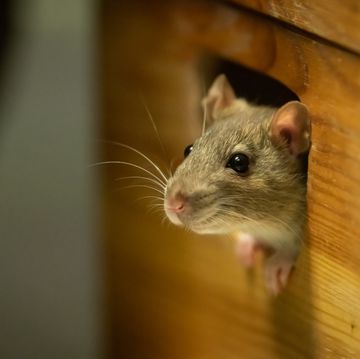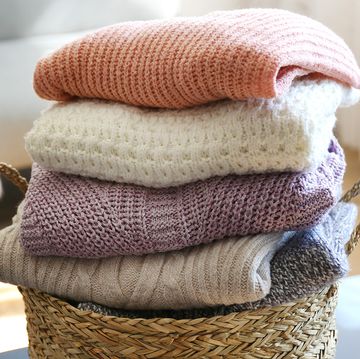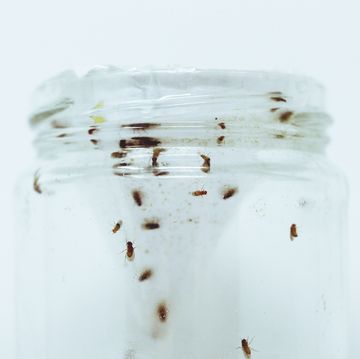Country Living editors select each product featured. If you buy from a link, we may earn a commission. Why Trust Us?
Store smarter
 Getty Images
Getty ImagesMice flock to food. So, to encourage them to scurry elsewhere, store food in plastic or metal containers secured with a tight lid.
Tidy up
 Getty Images
Getty ImagesTo deter rodents, the Centers for Disease Control and Prevention recommends emptying your pup's food or water bowls each night, and being sure to give your garbage can a thorough rub-down every now and then to wash out any food residue.
Throw ants off the trail
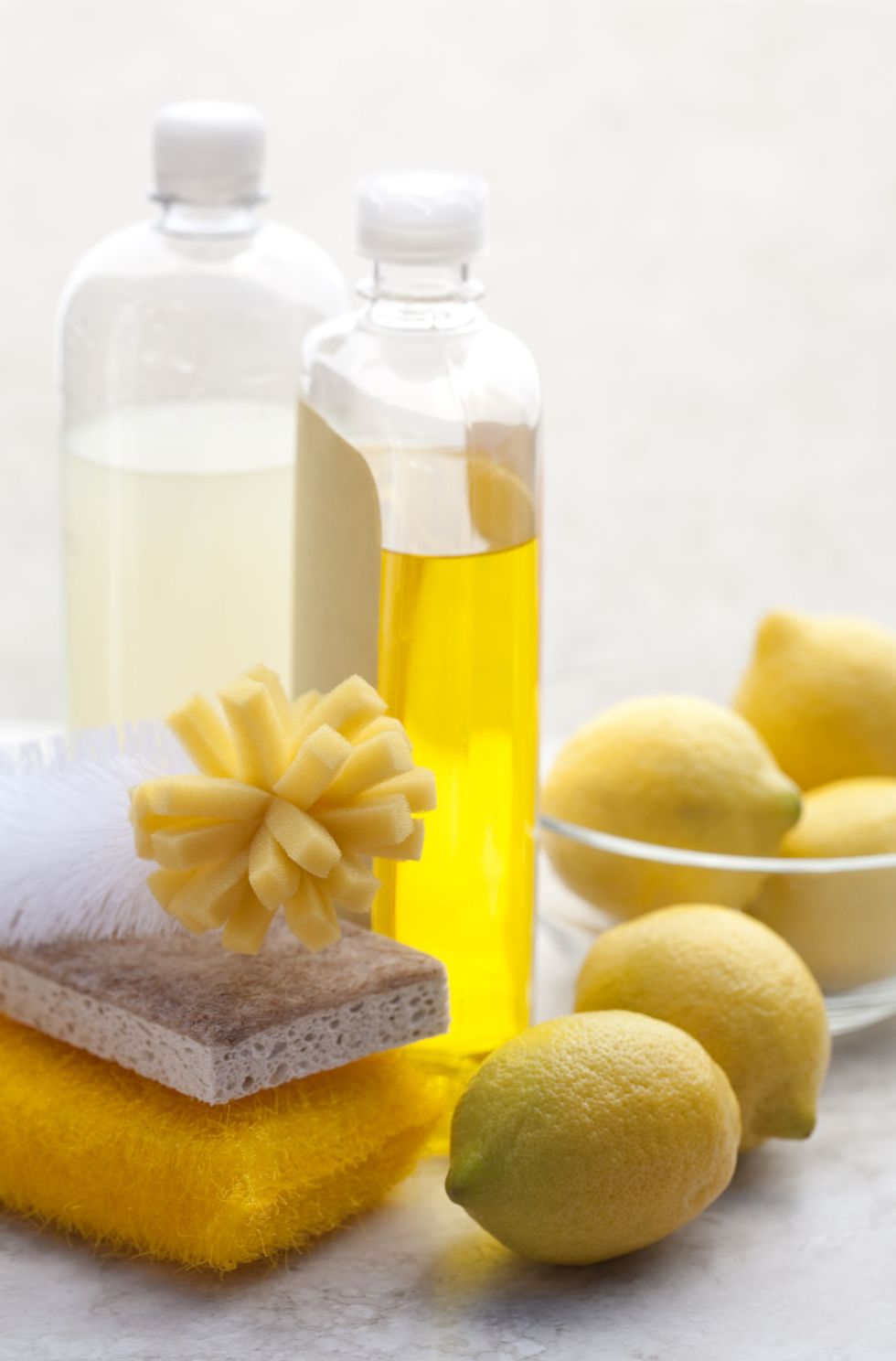 Getty Images
Getty ImagesIf you see a steady stream of ants making off with pantry crumbs, try interfering with their signals. Any product with citrus or soap should be sufficient to jumble up the scents that ants use to communicate and keep track of where they are.
Advertisement - Continue Reading Below
Shake up a solution
 Getty Images
Getty ImagesShoo flies with herbs
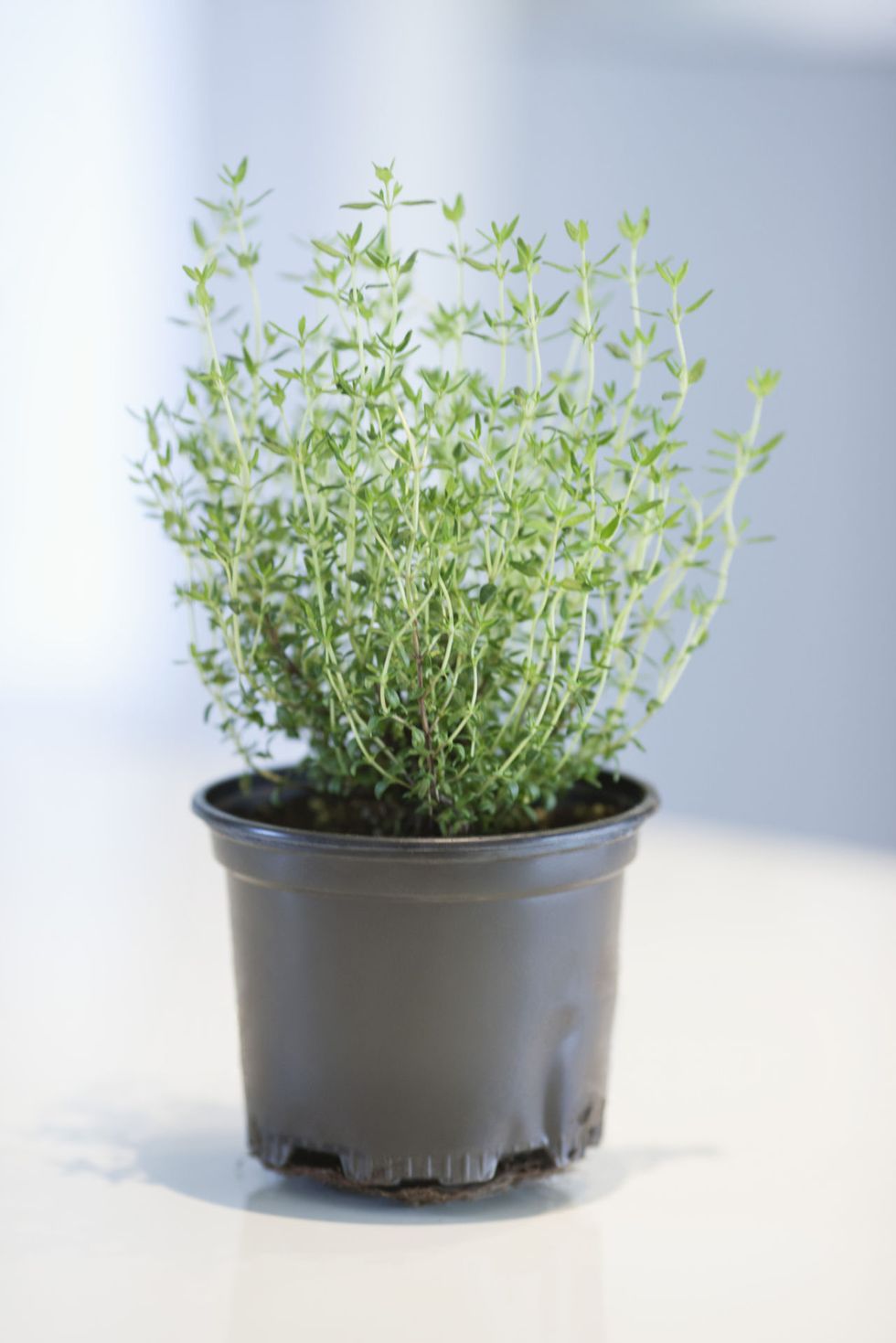 Getty Images
Getty ImagesSome research suggests that plant-based repellents can help ward off houseflies and mosquitoes. Thyme and basil are good ones to try. Plus, a study from Rutgers even found that essential-oil sprays can help wipe out bed bug populations.
[Note: Due to the ongoing threat of Zika virus spread by mosquito bites, the Centers for Disease Control and Prevention recommend emptying any flower pots or containers than can hold standing water inside your home, and wearing an EPA-registered insect repellent while outdoors.]
Lay a healthy foundation
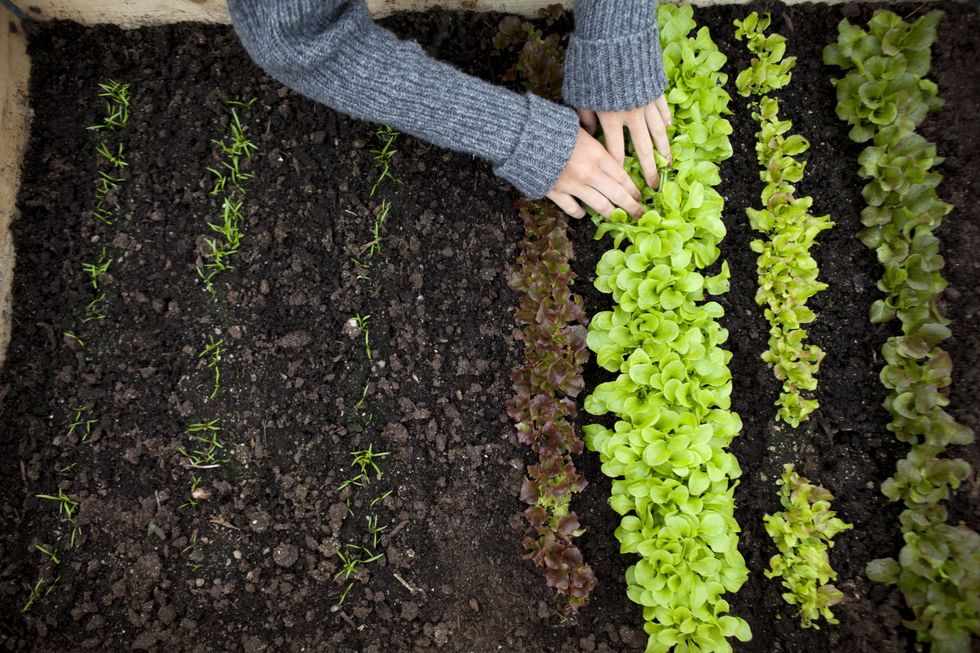 Getty Images
Getty ImagesK.Ruby Blume, the founder of the Institute of Urban Homesteading in Oakland, California, likens a healthy garden to a strong immune system: it helps fight off pathogens or pests. A soil rich in fungi, organic matter, and micro-organisms, and a variety of plants—such as marigolds and lavender—can keep the garden healthy enough to fend off any would-be attacks.
Advertisement - Continue Reading Below
Scare 'em off
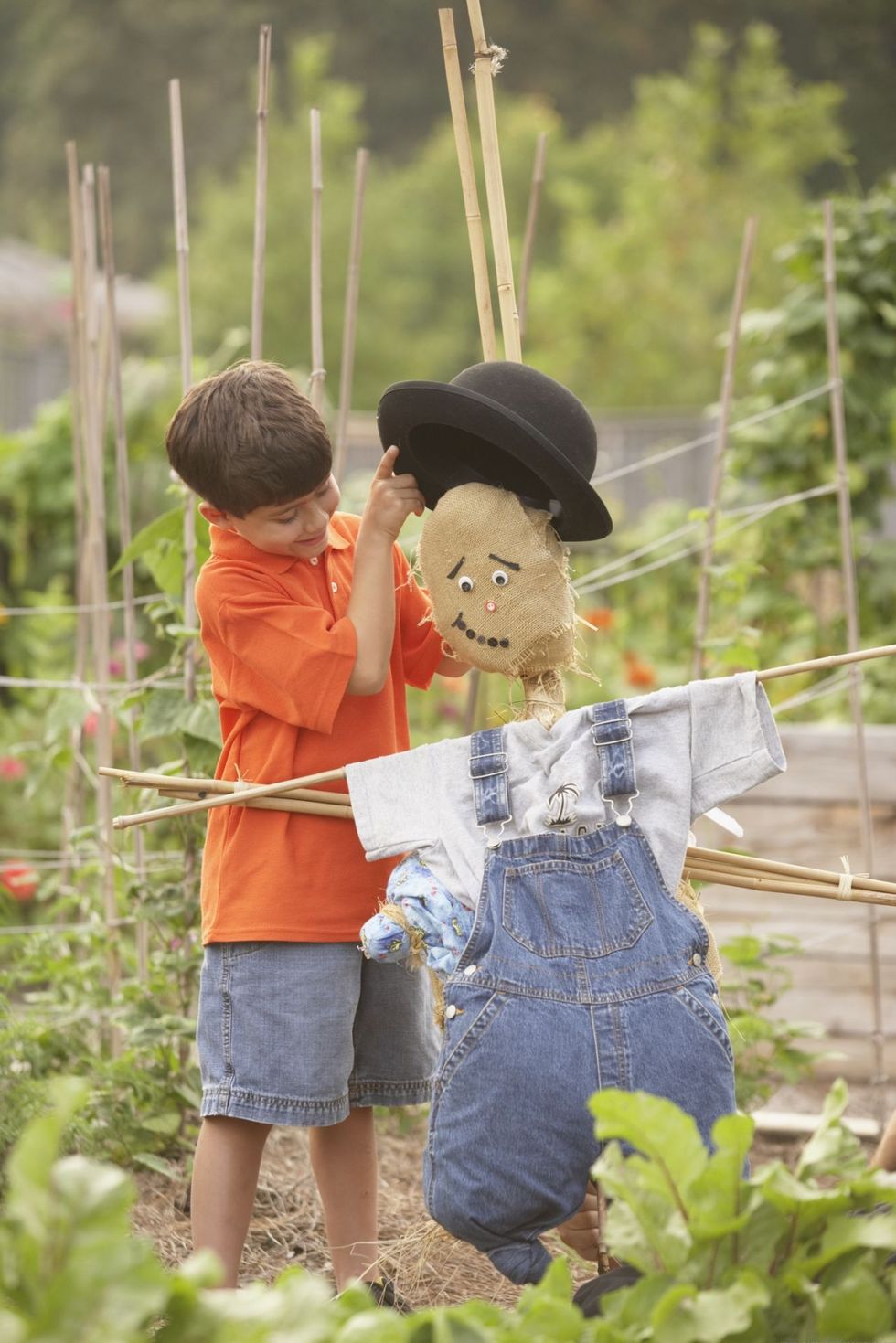 Getty Images
Getty ImagesAre animals chowing down on your vegetables before you get a chance to? In her new book, The Rooftop Growing Guide, veteran gardener Annie Novak—who runs the sprawling, 6,000-square-foot Eagle Street Rooftop Farm in Brooklyn—offers tips for waging a campaign against pests that have an appetite for crops. She suggests turning overtly brave pests into scaredy cats by stringing up decoy snakes, dummy owls, or anything that flaps in the wind and catches sunlight.
Give them their own space
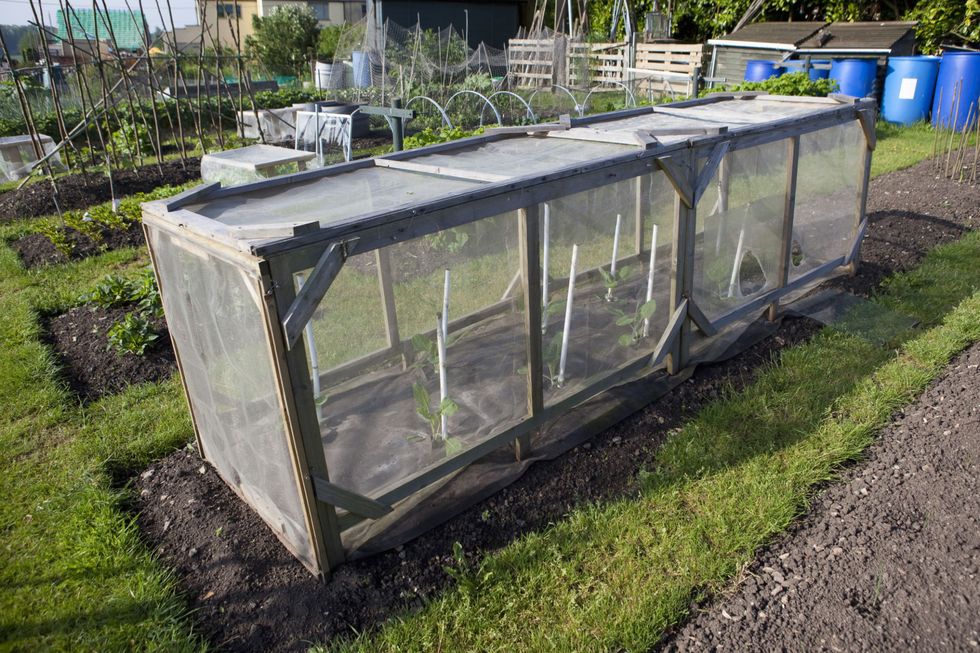 Getty Images
Getty ImagesIf some pests insist on returning to your garden again and again, it might be time to give in, just a little. Novak describes "distraction planting," which involves luring your unwanted visitors away from your prime haul. You could cover your "safe" plants with fine mesh bird netting—too small to accidentally ensnare the birds—and then leave the other bed open to would-be pests. "This idea works best in larger spaces, where there's room to plant the distraction crop far enough away from your planting that they don't just line up for a second course," writes Novak.
Brew tea to beat bugs
 Getty Images
Getty Images"The absolute best pest control I know is tobacco tea," says Blume. To kill bugs, brew chewing tobacco in hot water, dilute it, and spray it on bug-infested plants. Unfortunately, though, the tea can wipe out useful insects in addition to pesky ones. Be sure to avoid spraying it near bees or other helpful pollinators.
Advertisement - Continue Reading Below
Whip up an icky spray
 Getty Images
Getty ImagesSpritzing your plants with a DIY mist makes leaves unpalatable to beetles and squirrels alike. Novak says to mince 4 garlic gloves, and combine in a small bowl with 2 teaspoons mineral oil and a handful of orange, lemon, and lime citrus peel. Let the mixture sit for 24 hours. Then, strain out the garlic and citrus peel, and combine with 2 cups water and 1 teaspoon dishwashing liquid.
Proceed with caution: large doses of spicy ingredients can hurt the gardener, too. "If I'm spraying a garlic-pepper liquid on my radishes to keep squirrels away, I'm wearing gloves and swim goggles to avoid macing my own eyes," Novak writes.
Attract more of the good guys
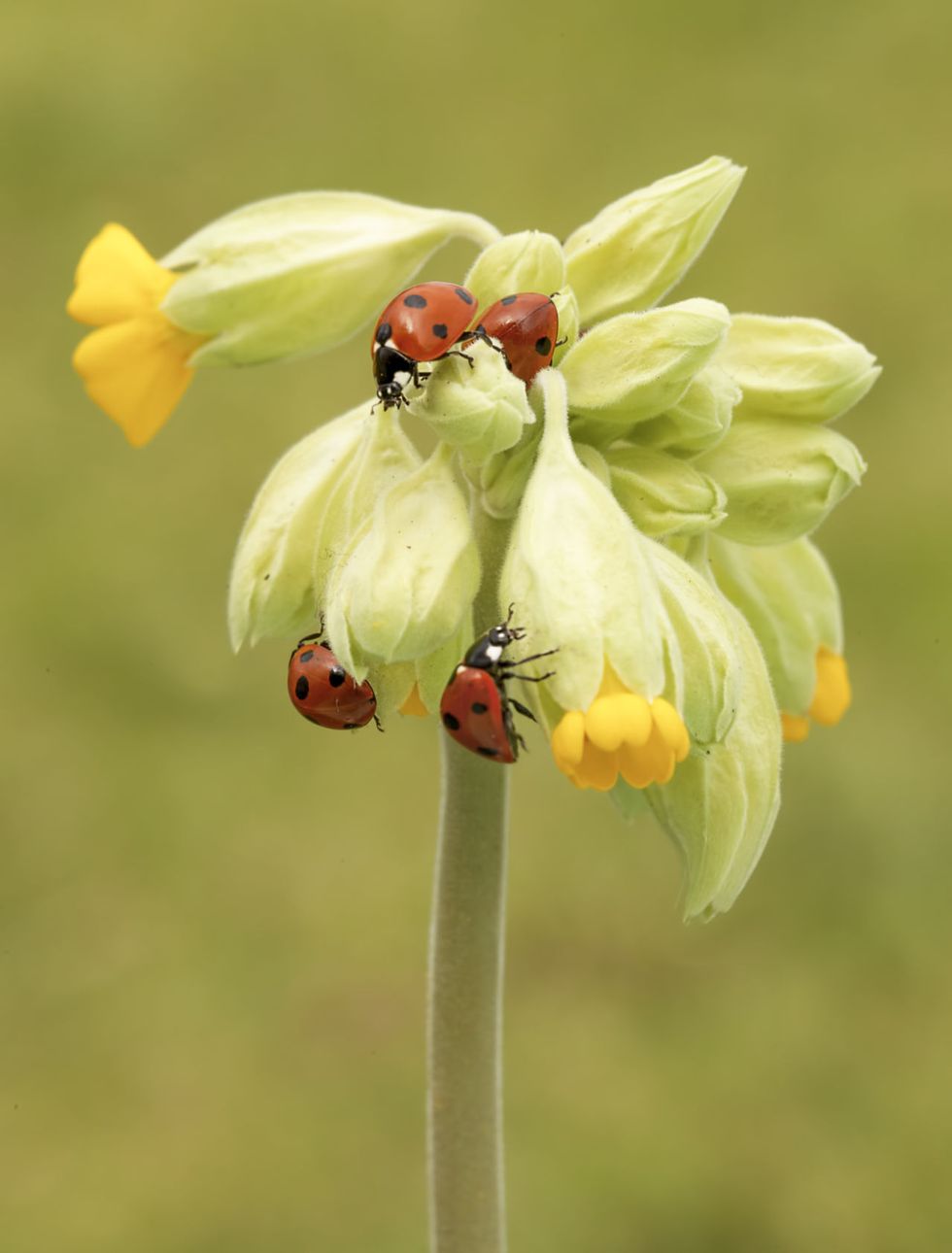 Getty Images
Getty ImagesDribble a urine trail
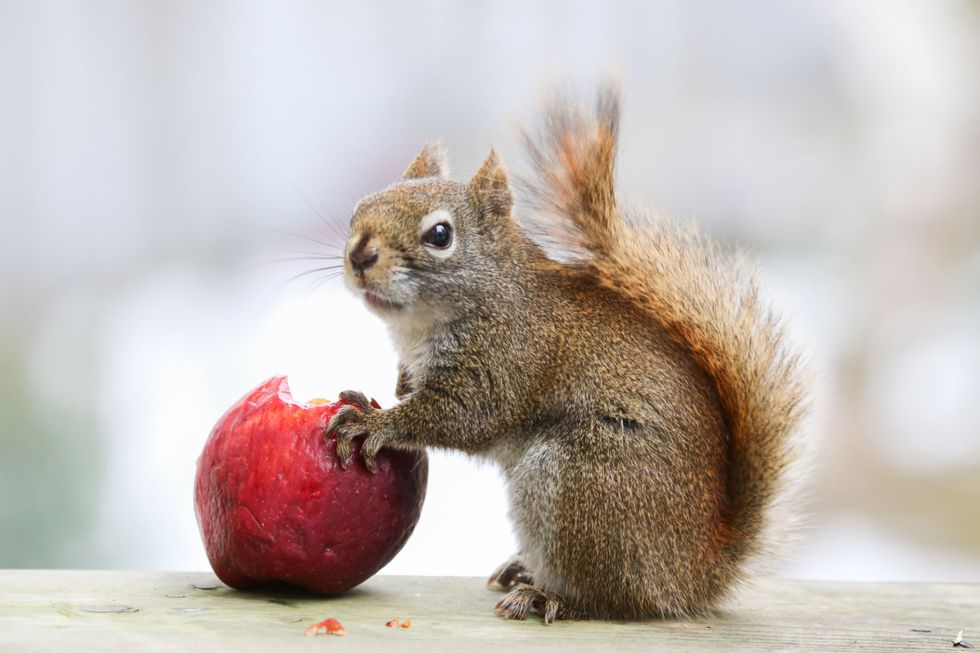 Getty Images
Getty ImagesSquirrels go nuts for fruit. "I find squirrels to be more of a problem than bugs in my garden," says Blume. "They'll wait until something is almost ripe, and take one bite out of it and throw it on the ground." Yet the scent of predator urine can encourage the critters to stay away. It's available through garden stores.
Advertisement - Continue Reading Below
Turn up the pressure
 Getty Images
Getty ImagesThe simplest way to combat an aphid infestation is just to turn up the hose to full blast and knock them right off, says Blume. "It's probably the most natural and benign way to deal with them," she says. And, next year, remember that some pests tend to target plants that are already vulnerable. "Aphids will tend to attack plants in the wrong season," Blume adds. That's why you'll see them on your cold-loving kale in the middle of summer, when the plants are already stressed out. Planting seasonally appropriate plants can be a helpful preventative step.

Jessica Leigh Hester is a Brooklyn-based writer and editor who loves gardening, decorating, and entertaining.
Advertisement - Continue Reading Below
Advertisement - Continue Reading Below
Advertisement - Continue Reading Below

